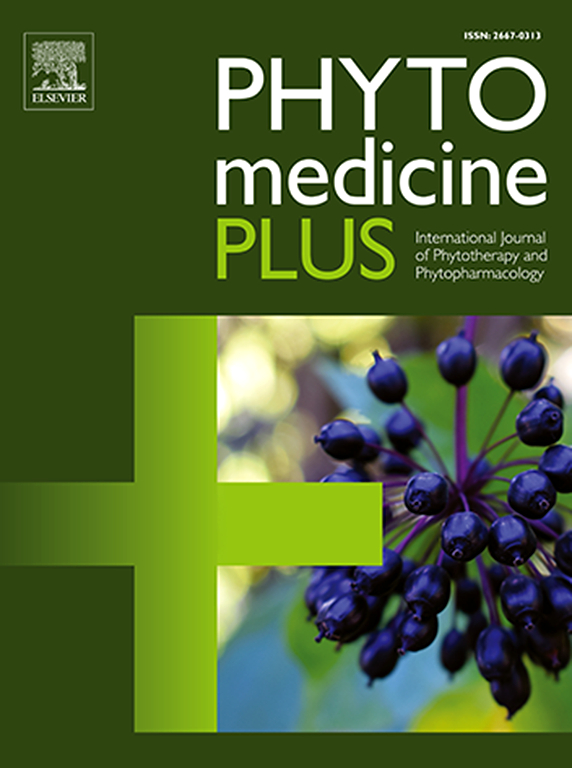Cannabis and the immune response: A comprehensive review of therapeutic potential and concerns
Q3 Pharmacology, Toxicology and Pharmaceutics
引用次数: 0
Abstract
Cannabis has long been esteemed for its analgesic, anti-inflammatory, and sedative characteristics. Ancient people such as the Egyptians, Greeks, and Chinese acknowledged the curative value of their medicinal practices. The identification of the endocannabinoid system, which engages with cannabis phytochemicals, has elucidated the mechanisms by which cannabis influences the human immune system, including the central nervous system. Cannabis and its bioactive components, particularly cannabinoids such as delta-9-tetrahydrocannabinol (THC) and cannabidiol (CBD), have garnered substantial interest for their potential therapeutic effects. This review comprehensively examines the interactions between cannabis and the immune system, focusing on immune cell function, clinical evidence, molecular mechanisms, and ongoing controversies. Cannabinoids modulate immune responses by interacting with cannabinoid receptors (CB1 and CB2) expressed on various immune cells. THC generally exhibits immunosuppressive properties beneficial in conditions such as autoimmune diseases, whereas CBD shows anti-inflammatory effects without broadly suppressing immune function. The review also highlights the complex impact of cannabinoids on T lymphocytes, B lymphocytes, macrophages, dendritic cells, and natural killer cells, influencing cytokine production and immune signaling pathways. Clinical studies suggest that cannabinoids may alleviate symptoms of multiple sclerosis, rheumatoid arthritis, and systemic lupus erythematosus, although their long-term impact on immune competence remains uncertain. Epidemiological studies indicate that chronic cannabis use may alter immune responses, with both beneficial and adverse effects. The review underscores the need for more extensive research to understand the dose-dependent immunomodulatory effects of cannabinoids and their potential for developing personalized therapeutic strategies. Emerging trends in cannabinoid research and the potential for cannabis-based therapies in immune-related diseases are also discussed, highlighting the promise and challenges in this evolving field.
大麻和免疫反应:治疗潜力和关注的全面审查
长期以来,大麻因其镇痛、抗炎和镇静的特性而受到尊敬。古埃及人、希腊人和中国人都承认他们的医学实践具有治疗价值。内源性大麻素系统的鉴定与大麻植物化学物质相结合,阐明了大麻影响人体免疫系统,包括中枢神经系统的机制。大麻及其生物活性成分,特别是大麻素,如德尔塔-9-四氢大麻酚(THC)和大麻二酚(CBD),因其潜在的治疗作用而获得了极大的兴趣。本文综述了大麻与免疫系统之间的相互作用,重点是免疫细胞功能、临床证据、分子机制和正在进行的争议。大麻素通过与各种免疫细胞上表达的大麻素受体(CB1和CB2)相互作用来调节免疫反应。四氢大麻酚通常在自身免疫性疾病等疾病中表现出有益的免疫抑制特性,而CBD则表现出抗炎作用,而不会广泛抑制免疫功能。该综述还强调了大麻素对T淋巴细胞、B淋巴细胞、巨噬细胞、树突状细胞和自然杀伤细胞的复杂影响,影响细胞因子的产生和免疫信号通路。临床研究表明大麻素可以缓解多发性硬化症、类风湿性关节炎和系统性红斑狼疮的症状,尽管其对免疫能力的长期影响尚不确定。流行病学研究表明,长期使用大麻可能改变免疫反应,既有有益的影响,也有不利的影响。该综述强调需要进行更广泛的研究,以了解大麻素的剂量依赖性免疫调节作用及其开发个性化治疗策略的潜力。还讨论了大麻素研究的新趋势和基于大麻的免疫相关疾病治疗的潜力,突出了这一不断发展的领域的希望和挑战。
本文章由计算机程序翻译,如有差异,请以英文原文为准。
求助全文
约1分钟内获得全文
求助全文
来源期刊

Phytomedicine Plus
Medicine-Complementary and Alternative Medicine
CiteScore
3.70
自引率
0.00%
发文量
178
审稿时长
81 days
期刊介绍:
 求助内容:
求助内容: 应助结果提醒方式:
应助结果提醒方式:


